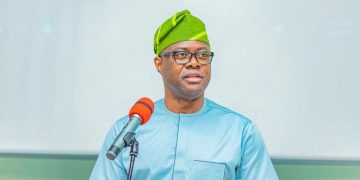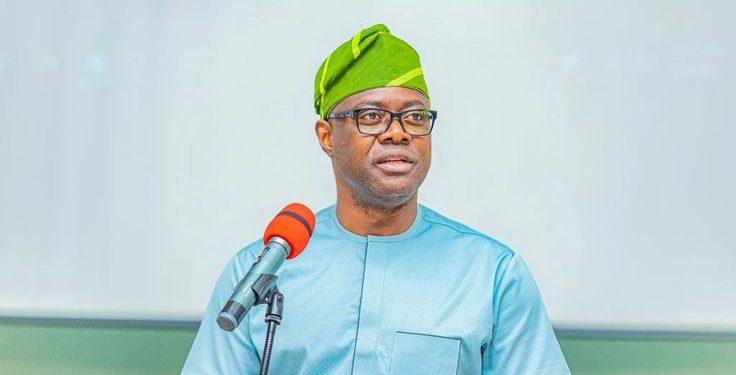The Oyo State Government has reiterated its commitment to maintaining order and discipline in public schools, with plans to crack down on unruly behavior and enforce existing regulations more strictly.
The Commissioner for Education, Science and Technology, Hon. Segun Olayiwola, made this known during the Omituntun 2.0 Inter-Ministerial Briefing held on Thursday. He disclosed that the government is working closely with the police to ensure a safe learning environment across schools in the state.
Olayiwola emphasized that disciplinary issues, including hooliganism, the unauthorized use of mobile phones, and examination malpractice, will now be addressed with firm measures. He urged parents to be more involved in guiding their children, stressing that efforts to maintain educational standards must begin at home.
He noted that the Makinde administration has introduced far-reaching policies since 2019 that have significantly transformed the education sector, which had previously faced serious challenges. According to him, prior to Governor Seyi Makinde’s tenure, the sector was plagued by dilapidated infrastructure, low academic performance, and high dropout rates.
The Commissioner, through a statement released by the Governor’s Special Adviser on Media, Dr. Sulaimon Olanrewaju, stated that increased budgetary allocation, infrastructure renewal, reduction of out-of-school children, and expansion of the education workforce have all contributed to the sector’s revival.
He added that these interventions have improved learning outcomes, increased school enrollment, and restored confidence in the system. Olayiwola also highlighted partnerships with international development agencies and alumni groups, which have helped boost support for public education.
He explained that the Ministry of Education now comprises 12 departments led by senior officials, 22 permanent secretaries, and education administrators overseeing 10 zones across the state. The ministry also supervises seven government agencies and 10 tertiary institutions, including LAUTECH, Abiola Ajimobi Technical University, Emmanuel Alayande University of Education, three polytechnics, and specialized schools in agriculture and health technology.
To address the staffing shortfall, Olayiwola said the government hired 15,000 teachers and non-teaching staff for 646 secondary schools and 2,506 primary schools, ensuring a better teacher-to-student ratio—now averaging one teacher per 25 students, better than the UNESCO benchmark of 1:30.
Reflecting on the challenges inherited in 2019, he said the sector then suffered from high dropout rates, poor exam performance, lack of infrastructure, and unpaid subventions to higher institutions. He said many schools were understaffed, while the state also failed to meet funding requirements for accessing counterpart-supported projects.
He credited the turnaround to Governor Makinde’s strategic approach, which included resolving the joint ownership dispute over LAUTECH and upgrading Emmanuel Alayande College of Education to university status, increasing the number of state-owned universities to three.
He also mentioned that collaborative efforts with international academic institutions have yielded notable research successes, including a patent secured by five lecturers from Abiola Ajimobi Technical University, recognized at the national level.
Olayiwola concluded by stating that education remains a top priority of the administration, and with continued investment and reforms, the state is on track to achieve even greater milestones.
The Commissioner was joined at the briefing by Permanent Secretary Mrs. Bamidele Oyinloye, 12 directors, and the Secretary of the State Scholarship Board.















